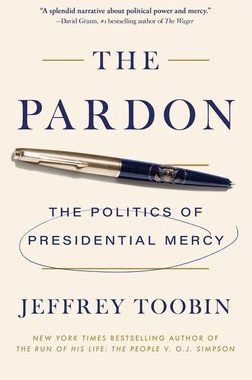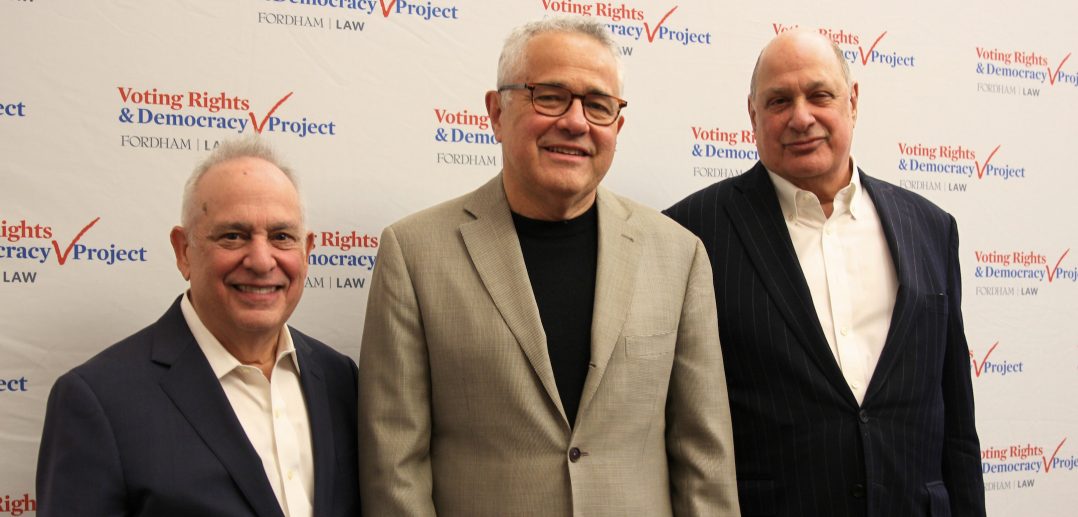Toobin joined the Fordham Law community to discuss his latest book, The Pardon: The Politics of Presidential Mercy, which explores the origins, history, and political impact of pardons. The event was moderated by Joel Cohen, senior counsel at Petrillo Klein & Boxer LLP and an adjunct professor at Fordham Law, and Jerry H. Goldfeder, senior counsel at Cozen O’Connor and director of the Fordham Law Voting Rights and Democracy Project.
 According to Toobin, the idea of including presidential pardon powers in the Constitution came from Alexander Hamilton, who took the idea from the United Kingdom, which granted pardon powers to the King. “It’s an anomaly in the Constitution, because the Constitution is based on the idea of checks and balances, but there is no check or balance to the pardon power,” said Toobin. “There’s nothing Congress can do to stop a pardon or impose a pardon. There’s nothing the courts can do to stop a pardon or impose a pardon.”
According to Toobin, the idea of including presidential pardon powers in the Constitution came from Alexander Hamilton, who took the idea from the United Kingdom, which granted pardon powers to the King. “It’s an anomaly in the Constitution, because the Constitution is based on the idea of checks and balances, but there is no check or balance to the pardon power,” said Toobin. “There’s nothing Congress can do to stop a pardon or impose a pardon. There’s nothing the courts can do to stop a pardon or impose a pardon.”
Toobin explained that the pardon power was included in the Constitution as both a political tool and a means for presidents to correct overly harsh sentences.
Many notable pardons—such as Gerald Ford pardoning Richard Nixon for his role in the Watergate scandal, and more recently, Donald Trump pardoning January 6th rioters who stormed the Capitol—have been used for “bad” ends, according to Toobin. However, he said that, ultimately, pardons remain an important tool for presidents to grant mercy to those who have been too harshly punished.
“I’ve written a whole book about pardons, and most of the pardons discussed in the book are bad pardons. So why should we have a pardon power at all? Shouldn’t we get rid of it, assuming you could amend the Constitution in that way?” said Toobin. “And my answer to that is absolutely not.”
“The nature of politics in this country, and I’d say probably in most countries, is that it is always the safer political choice to have harsher law enforcement for mass incarceration—the pardon power is a potential check on that,” said Toobin. He pointed to Barack Obama’s commutations against low-level drug offenders and Jimmy Carter’s amnesty towards Vietnam War resisters as positive examples of presidential pardon powers.
Goldfeder suggested that though we may not agree with some presidential pardons, such as Gerald Ford pardoning Nixon, president’s are within their rights to make decisions like these. “There are good pardons, there are bad pardons, but as you say, that’s the power, and you kind of have to live with a president making decisions,” said Goldfeder.
Toobin’s solution is not to do away with the pardon system as it is but rather simply to elect presidents who use the pardon powers appropriately. “My solution is not to abolish the pardon power,” said Toobin, “My solution is to have better presidents.”

